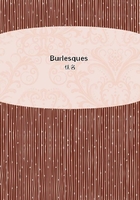
第106章
So Sir Wilfrid was as disgusted at her readiness to part with him as he had been weary of staying at home, which caused Wamba the Fool to say, "Marry, gossip, thou art like the man on ship-board, who, when the boatswain flogged him, did cry out 'Oh!' wherever the rope's-end fell on him: which caused Master Boatswain to say, 'Plague on thee, fellow, and a pize on thee, knave, wherever I hit thee there is no pleasing thee.'""And truly there are some backs which Fortune is always belaboring,"thought Sir Wilfrid with a groan, "and mine is one that is ever sore."So, with a moderate retinue, whereof the knave Wamba made one, and a large woollen comforter round his neck, which his wife's own white fingers had woven, Sir Wilfrid of Ivanhoe left home to join the King his master. Rowena, standing on the steps, poured out a series of prayers and blessings, most edifying to hear, as her lord mounted his charger, which his squires led to the door. "It was the duty of the British female of rank," she said, "to suffer all--ALL in the cause of her sovereign. SHE would not fear loneliness during the campaign: she would bear up against widowhood, desertion, and an unprotected situation.""My cousin Athelstane will protect thee," said Ivanhoe, with profound emotion, as the tears trickled down his basenet; and bestowing a chaste salute upon the steel-clad warrior, Rowena modestly said "she hoped his Highness would be so kind."Then Ivanhoe's trumpet blew: then Rowena waved her pocket-handkerchief: then the household gave a shout: then the pursuivant of the good Knight, Sir Wilfrid the Crusader, flung out his banner (which was argent, a gules cramoisy with three Moors impaled sable): then Wamba gave a lash on his mule's haunch, and Ivanhoe, heaving a great sigh, turned the tail of his war-horse upon the castle of his fathers.
As they rode along the forest, they met Athelstane the Thane powdering along the road in the direction of Rotherwood on his great dray-horse of a charger. "Good-by, good luck to you, old brick," cried the Prince, using the vernacular Saxon. "Pitch into those Frenchmen; give it 'em over the face and eyes; and I'll stop at home and take care of Mrs. I.""Thank you, kinsman," said Ivanhoe--looking, however, not particularly well pleased; and the chiefs shaking hands, the train of each took its different way--Athelstane's to Rotherwood, Ivanhoe's towards his place of embarkation.
The poor knight had his wish, and yet his face was a yard long and as yellow as a lawyer's parchment; and having longed to quit home any time these three years past, he found himself envying Athelstane, because, forsooth, he was going to Rotherwood: which symptoms of discontent being observed by the witless Wamba, caused that absurd madman to bring his rebeck over his shoulder from his back, and to sing--"ATRA CURA.
"Before I lost my five poor wits, I mind me of a Romish clerk, Who sang how Care, the phantom dark, Beside the belted horseman sits.
Methought I saw the griesly sprite Jump up but now behind my Knight.""Perhaps thou didst, knave," said Ivanhoe, looking over his shoulder; and the knave went on with his jingle:
"And though he gallop as he may, I mark that cursed monster black Still sits behind his honor's back, Tight squeezing of his heart alway.
Like two black Templars sit they there, Beside one crupper, Knight and Care.
"No knight am I with pennoned spear, To prance upon a bold destrere:
I will not have black Care prevail Upon my long-eared charger's tail, For lo, I am a witless fool, And laugh at Grief and ride a mule."And his bells rattled as he kicked his mule's sides.
"Silence, fool!" said Sir Wilfrid of Ivanhoe, in a voice both majestic and wrathful. "If thou knowest not care and grief, it is because thou knowest not love, whereof they are the companions.
Who can love without an anxious heart? How shall there be joy at meeting, without tears at parting?" ("I did not see that his honor or my lady shed many anon," thought Wamba the Fool; but he was only a zany, and his mind was not right.) "I would not exchange my very sorrows for thine indifference," the knight continued. "Where there is a sun, there must be a shadow. If the shadow offend me, shall I put out my eyes and live in the dark? No! I am content with my fate, even such as it is. The Care of which thou speakest, hard though it may vex him, never yet rode down an honest man. Ican bear him on my shoulders, and make my way through the world's press in spite of him; for my arm is strong, and my sword is keen, and my shield has no stain on it; and my heart, though it is sad, knows no guile." And here, taking a locket out of his waistcoat (which was made of chain-mail), the knight kissed the token, put it back under the waistcoat again, heaved a profound sigh, and stuck spurs into his horse.
As for Wamba, he was munching a black pudding whilst Sir Wilfrid was making the above speech, (which implied some secret grief on the knight's part, that must have been perfectly unintelligible to the fool,) and so did not listen to a single word of Ivanhoe's pompous remarks. They travelled on by slow stages through the whole kingdom, until they came to Dover, whence they took shipping for Calais. And in this little voyage, being exceedingly sea-sick, and besides elated at the thought of meeting his sovereign, the good knight cast away that profound melancholy which had accompanied him during the whole of his land journey.
CHAPTER II.
THE LAST DAYS OF THE LION.